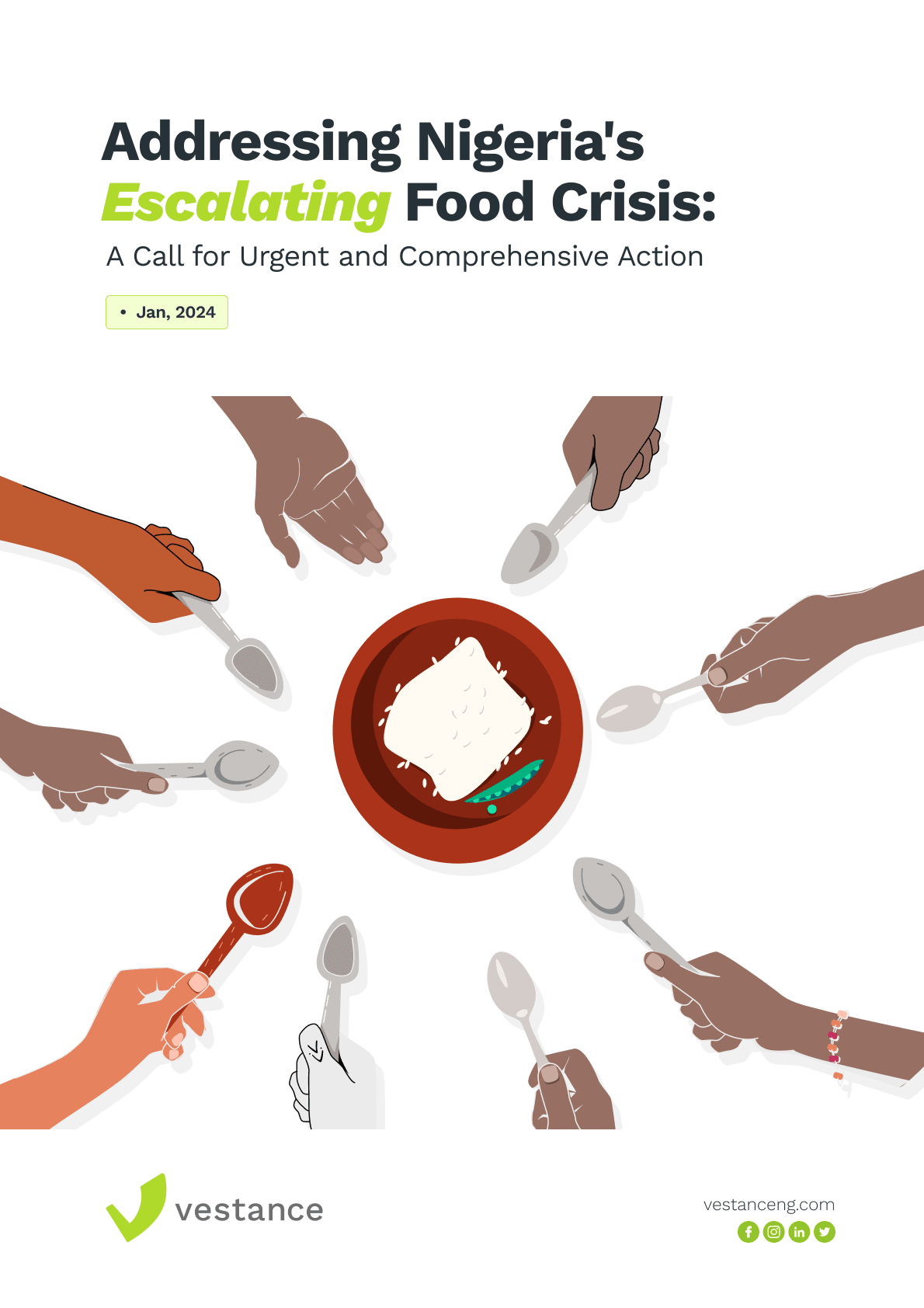In the heart of Africa, Nigeria stands at a crossroads, facing an unprecedented and intensifying food crisis. This crisis, like a gathering storm, traces its origins back to the year 2014 when the nation's economy was hit by the collapse of global crude oil prices. However, the turbulence didn't end there. In the years that followed, a series of domestic and external shocks struck Nigeria's food system: the COVID-19 pandemic, geopolitical crisis, crude oil theft, insecurity, and extreme weather conditions.
The cumulative impact has left an indelible mark on the nation's landscape, one characterized by widespread hunger and stark adversity. The gravity of this issue is impossible to ignore, and the urgency for action is not just a matter of debate; it's an imperative. Nigeria stands at the brink, and the choices made today will determine the future not just of its people but of the entire nation. To address the escalating food crisis, the Nigerian government must restore macroeconomic stability, strengthen policy coordination, temporarily ease restrictions on food import and boost sustainable investments in the food system.
